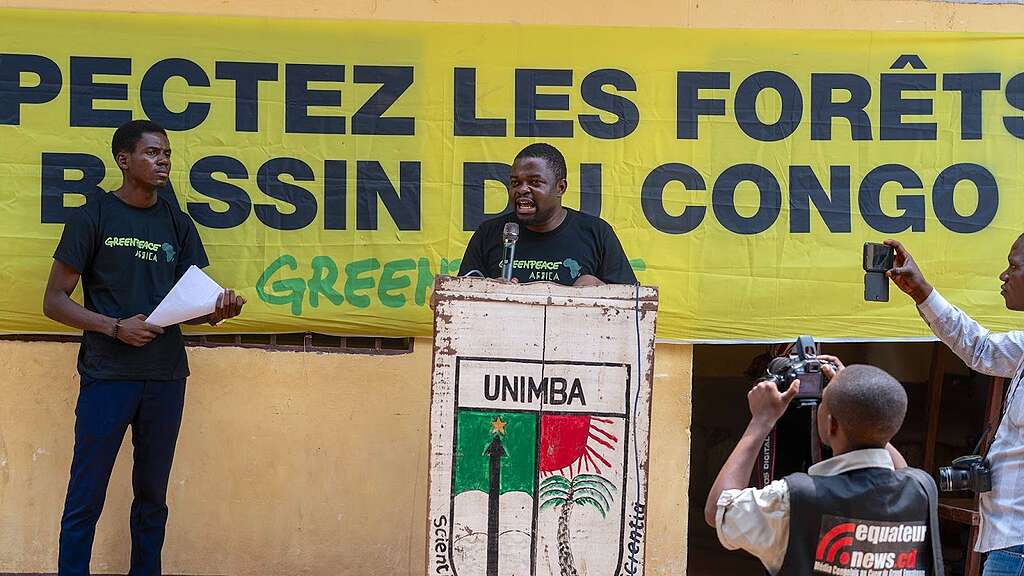-
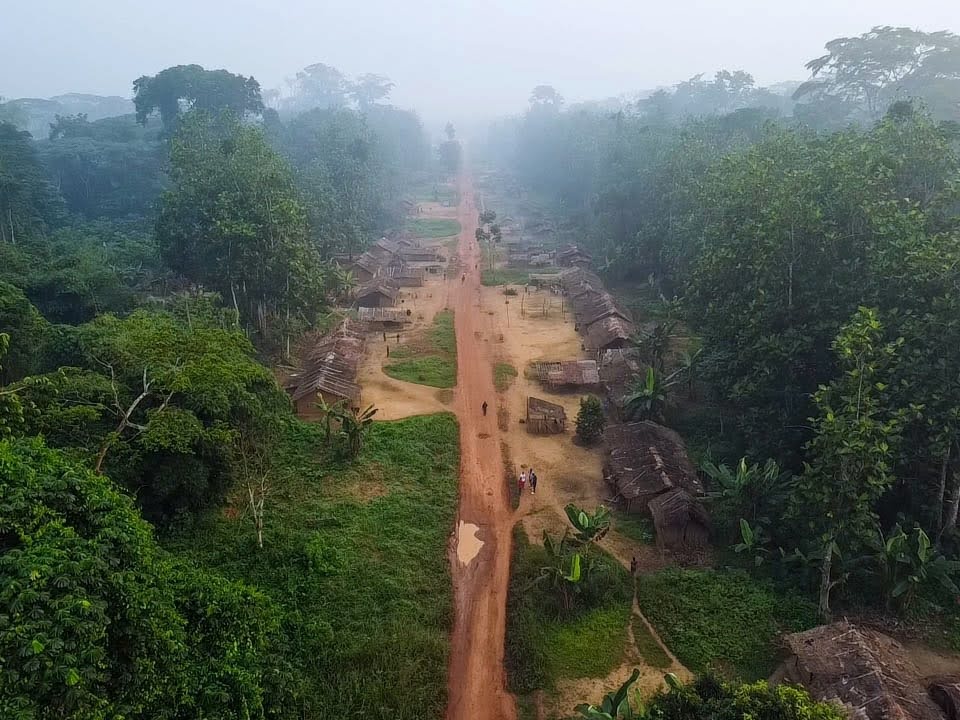
Travel diary from the heart of the Congo Basin: voices and hopes of indigenous peoples
In August 2025, Greenpeace Africa led an exceptional expedition to the heart of the Congo Basin, to the villages of Lokolama and Penzélé, as well as to Mbandaka, in Equateur Province.
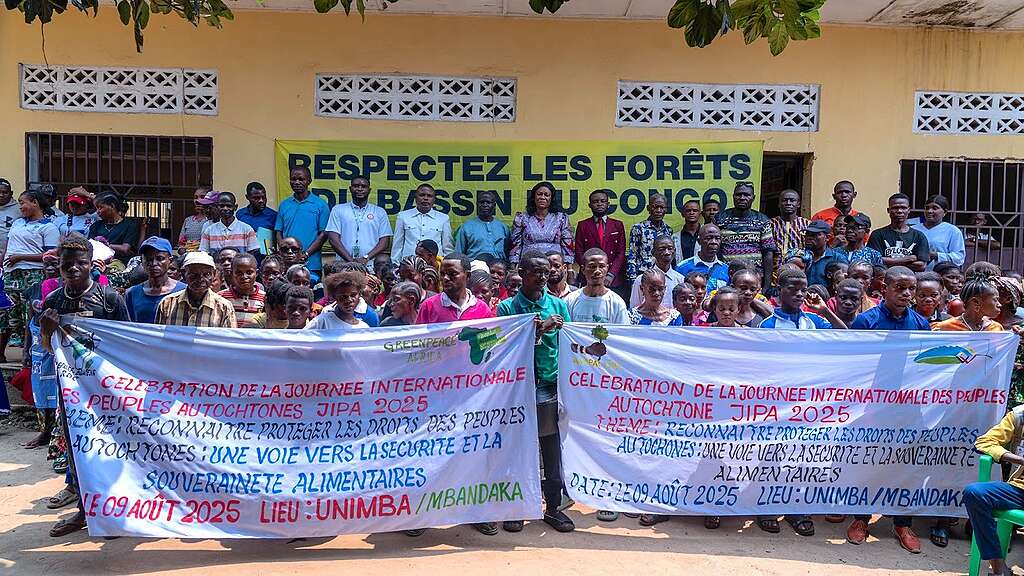
On August 8, 2025, the city of Mbandaka vibrated to the rhythms of drums, songs, and dances to celebrate the 31st International Day of Indigenous Peoples. More than 1,000 students, 100 indigenous representatives, local authorities, members of civil society, and the Climate Justice Movement (CJM) gathered at the University of Mbandaka for a historic day that was both festive and full of demands.
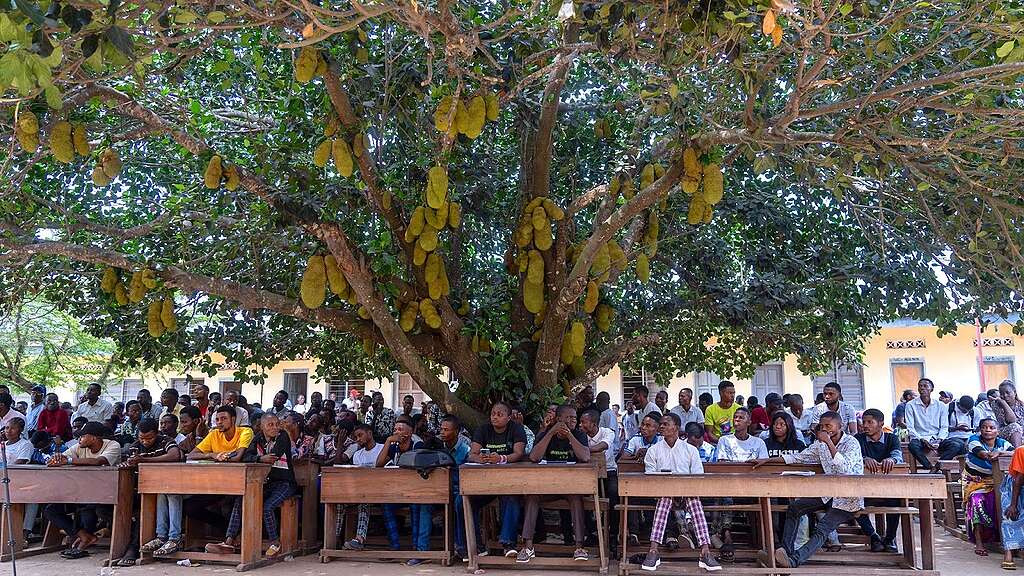
A colorful celebration
The day was marked by a diversity of artistic and cultural expressions: traditional songs, dances, poems, and skits performed by young people created a vibrant atmosphere, imbued with pride and solidarity. These performances highlighted the strength and resilience of indigenous peoples, the true guardians of the forests of the Congo Basin.
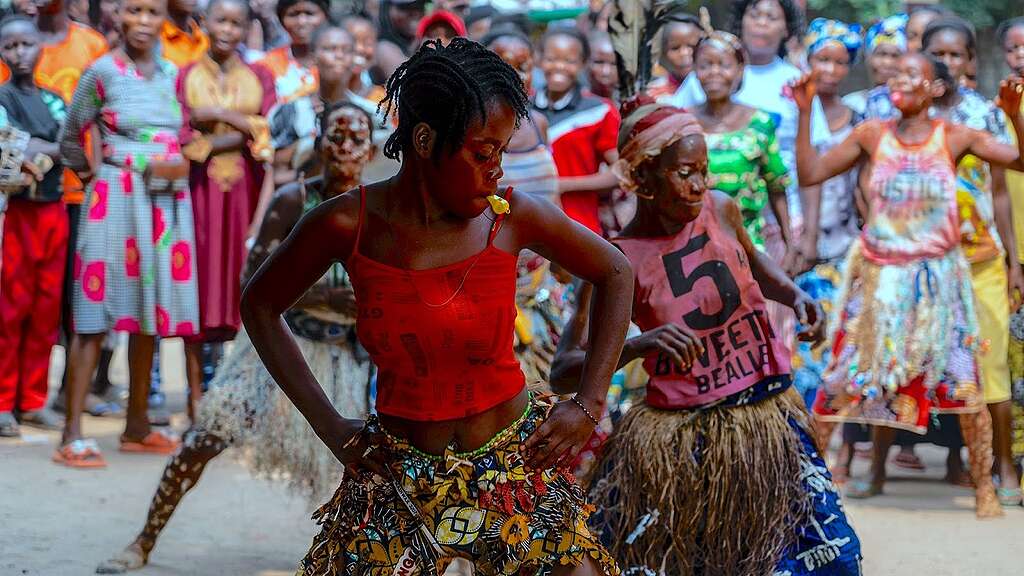
When people speak out
Beyond the festivities, this day was an opportunity for indigenous peoples to voice their demands. In a solemn declaration presented to the Mayor of Mbandaka, they reiterated their three priority demands:
- Legal recognition of their status and effective protection of their land and forest rights;
- Direct, fair, and equitable access to climate finance;
- The institutionalization of a regional Congo Basin Day.
“We are the first guardians of the forest. Without us, there are no sustainable solutions. It is time for our rights to be respected,” said an indigenous representative before a moved and attentive audience.
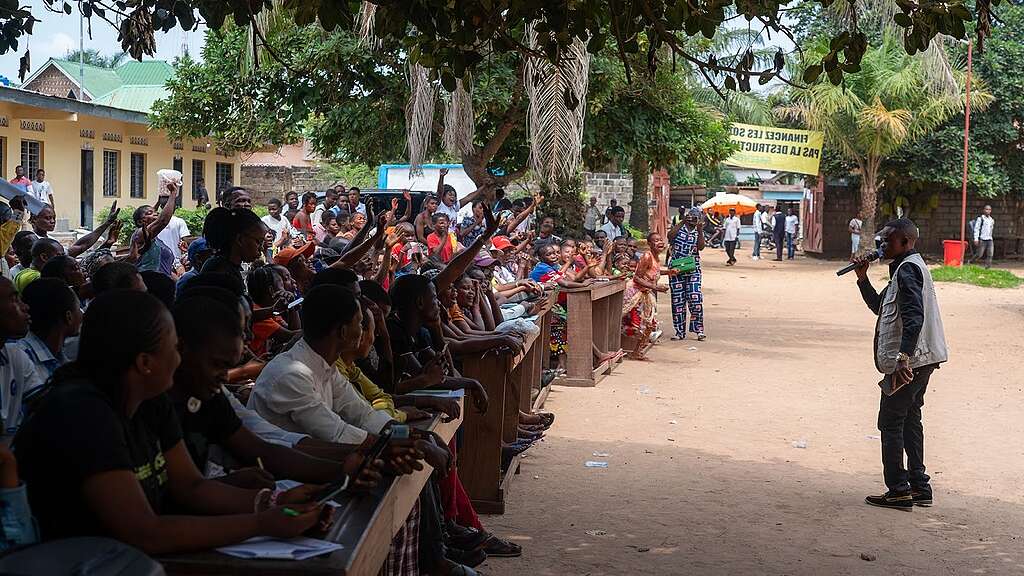
Citizen mobilization for the Congo Basin
The celebration also served as a springboard for the “Respect the Congo Basin” campaign. Thanks to Greenpeace Africa volunteers, 751 signatures were collected on site in support of this petition. This is a strong sign that the local population is mobilizing to defend its natural and cultural heritage.
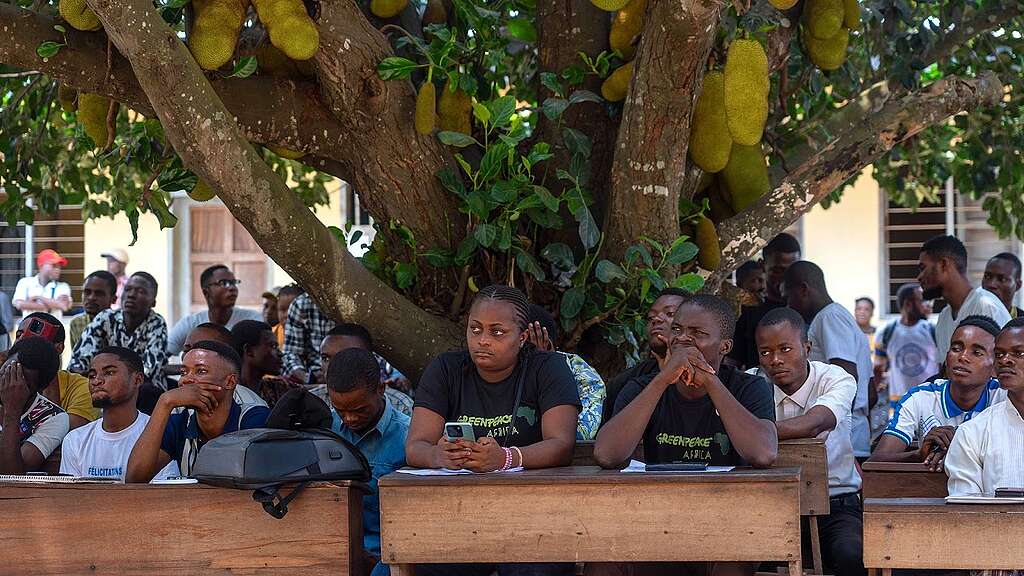
A step on the road to COP30
This large-scale event showed that the defense of forests and the rights of indigenous peoples is now a cause shared by Congolese youth, communities, and civil society. With COP30 approaching, Mbandaka sent a clear message to the world: indigenous peoples must be at the center of climate decisions.
